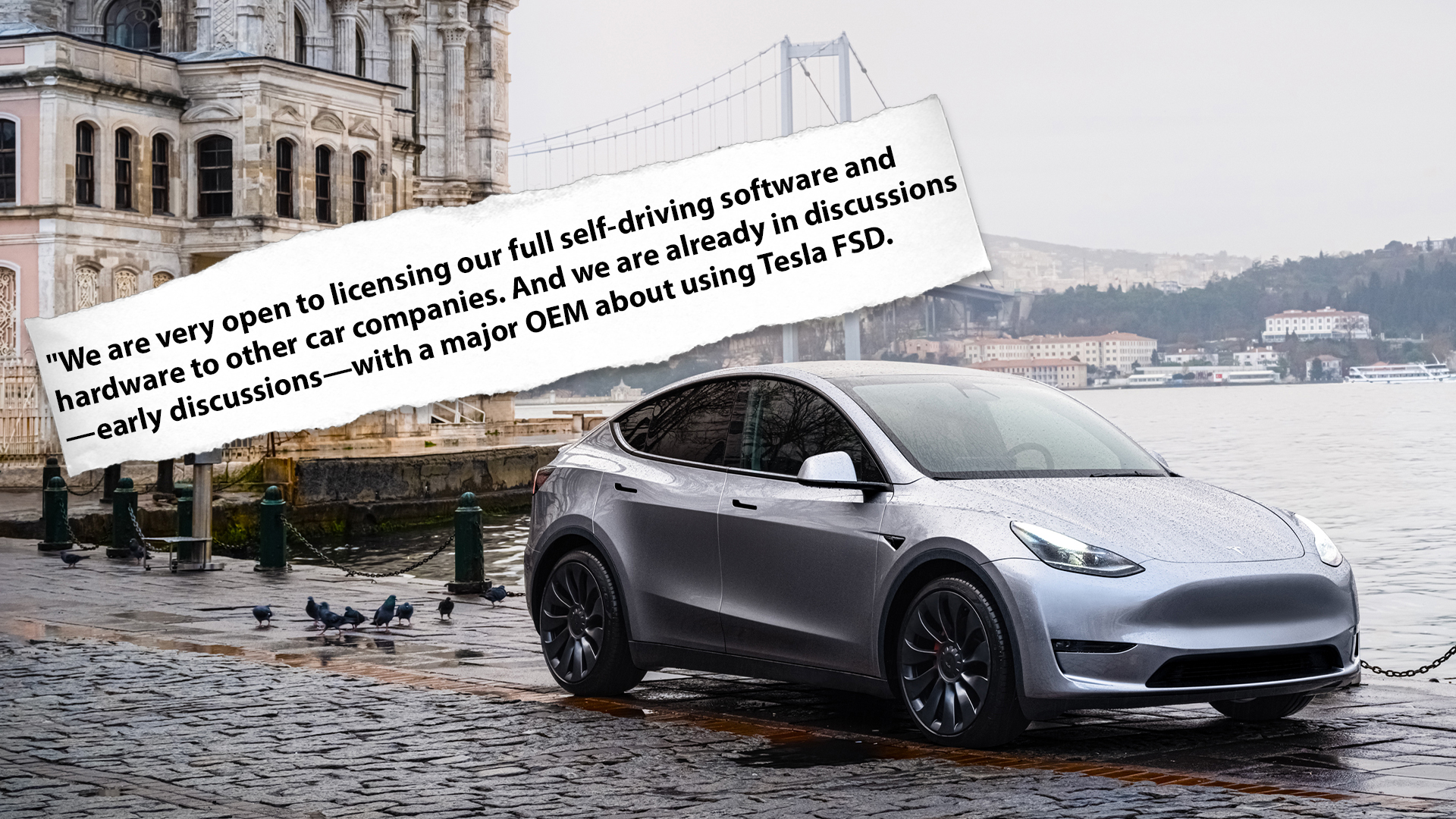

Tesla has always claimed to be a software/tech company first, and an automaker second. Sure, it builds its electric cars, but its CEO Elon Musk believes that the manufacturer’s bread and butter will ultimately be its self-driving software. If Tesla can perfect it, that is.
On Wednesday, during the company’s second quarterly earnings call of 2023, Musk confirmed that it is in talks with another major automaker to license its Autopilot and Full Self-Driving technology for the first time.

“We are very open to licensing our full self-driving software and hardware to other car companies,” said Musk. “And we are already in discussions—early discussions—with a major OEM about using Tesla FSD. We’re not trying to keep this to ourselves. We’re more than happy to license it to others.”
Tesla’s ability to diversify its manufacturing capabilities beyond just building cars has allowed it to have multiple revenue streams. This has led to income from charging networks, insurance products, battery backup systems, solar power, asset management platforms, and in the future, perhaps even humanoid robots. One area that the automaker hasn’t yet tapped into is licensing its advanced driver assistance system, Autopilot, or its more feature-rich arm of the product stack simply called “Full Self-Driving.”
Musk did not mention which automaker specifically Tesla has been speaking with, however, the CEO has been quite open about Tesla’s willingness to license its tech to other manufacturers for some time.
Currently, all income produced from Full Self-Driving is paid directly by consumers who purchase the option outright for $15,000 or subscribe to it on a month-to-month basis at $200. If a consumer decides to purchase FSD outright, the software stays with the vehicle for life and does not transfer to another Tesla should the owner decide to upgrade later on. This has been met with animosity from buyers who purchase the option only to find out that it’s worth only $3,900 on a trade-in later on despite Musk previously calling it an “appreciating asset.”
During the quarterly earnings call, Musk announced that Tesla would allow owners to perform a one-time transfer of FSD to another vehicle, meaning that owners will be able to transfer their FSD to a new purchase for the first time.
“We’re excited to announce that, for Q3, we will be allowing [the] transfer of FSD,” said Musk. “This is a one-time amnesty, so you need to take advantage of it in Q3, or at least place the order in Q3 within reasonable delivery time frames.”
Musk made it clear that Tesla gets asked about allowing the transfer of FSD “a lot,” and while it has never allowed this in the past, it will be making a one-time exception for consumers who purchase a new car during the third quarter.
The automaker also announced that it plans to idle some production lines for “a lot of [global] factory upgrades” during the quarter, meaning that production overall will be down. It’s unclear if these upgrades are aimed at efficiency, or if it is to retool the lines to prepare for the inevitable Model 3 refresh, codenamed Project Highland.

“We expect that Q3 production will be a little bit down because we’ve got some shutdowns for a lot of factory upgrades,” said Musk. “So, just probably a slight decrease in production in Q3 for sort of global factory upgrades.”
Zachary Kirkhorn, Tesla’s CFO, reiterated that Q3 volume will be reduced due to the factory upgrades and would result in “some amount of factory idle cost.” Likely, Tesla’s proposal of allowing the transfer of FSD could be a way to coax buyers into upgrading the vehicles to simulate growth during a time when it has identified that it will lose revenue due to downtime.
Got a tip or question for the author? Contact them directly: rob@thedrive.com